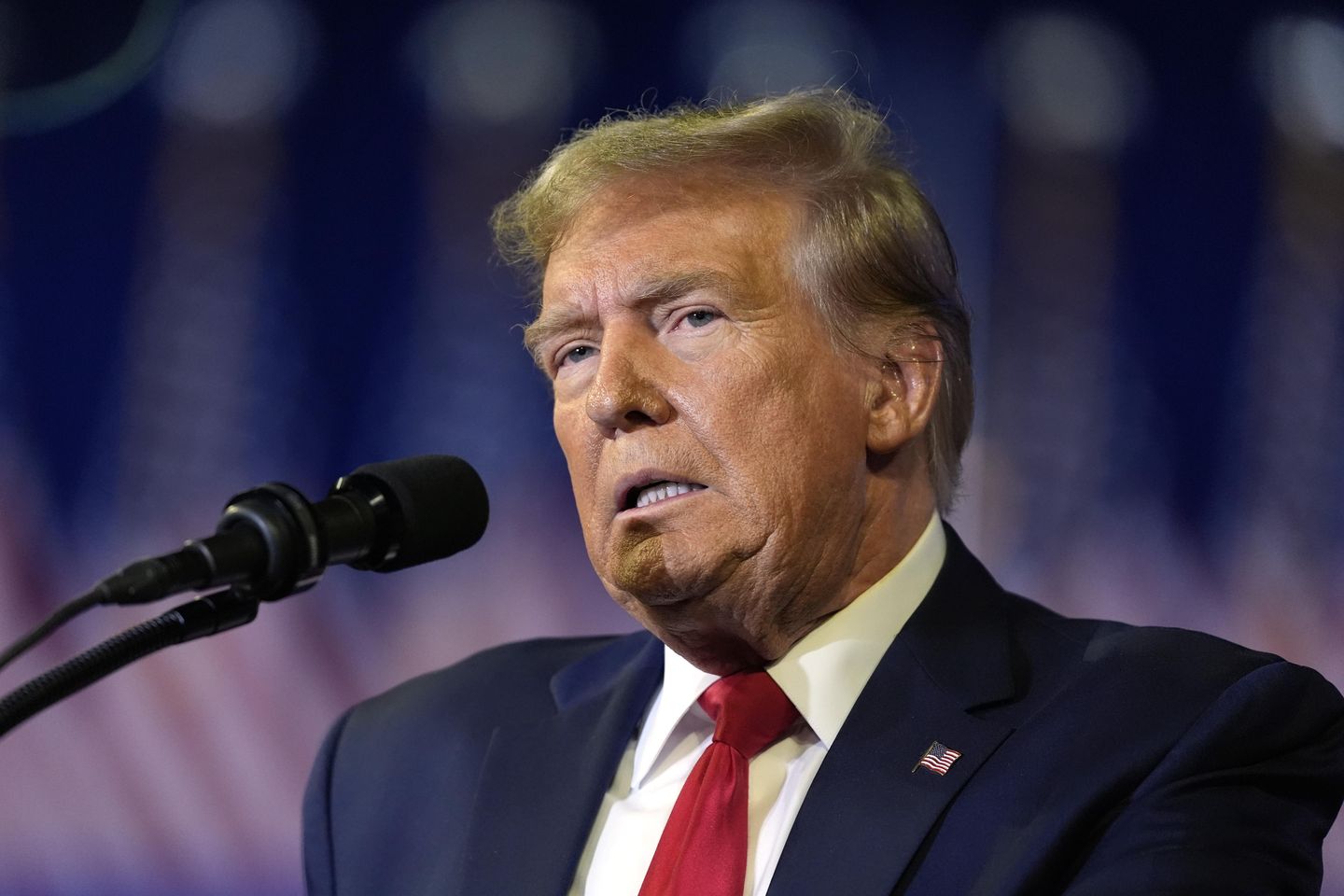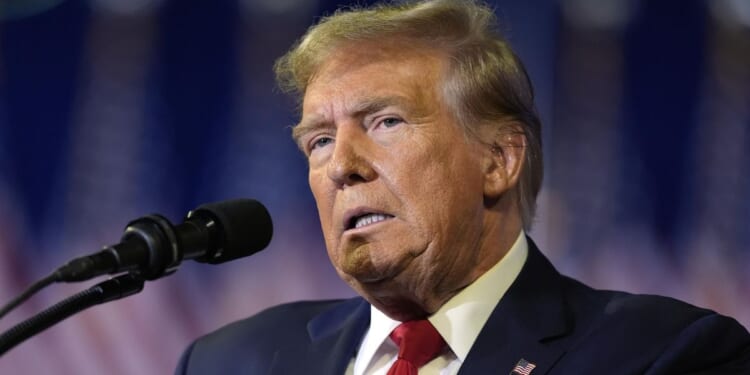
Former President Donal Trump told the Supreme Court Thursday that Special Counsel Jack Smith’s argument not to delay his trial on charges of election fraud reveals “partisanship,” as he urged the justices to suspend an appellate court ruling that rejected his bid for presidential immunity.
Mr. Trump’s lawyers pointed out that just two months ago, Mr. Smith urged the high court to hear the presidential immunity matter — looking to bypass the D.C. Circuit Court of Appeals — but now is arguing the justices shouldn’t take up the issue because it would delay the trial.
“He provides no convincing reason to deny the requested stay,” Mr. Trump’s lawyers wrote. “The stay requested by President Trump should be granted.”
They also said Mr. Smith suggested the trial could start in about three months if the high court declined Mr. Trump’s request to stay the lower court’s ruling against him. But that, Mr. Trump’s lawyers said, was unjust.
“The case involves almost 13 million pages of discovery, thousands of hours of video footage, and hundreds of potential witnesses. With any other defendant, it would be virtually unthinkable for the case to go to trial so soon, and ‘wildly unfair’ to do so,” they said.
On Wednesday, Mr. Smith urged the justices not to delay Mr. Trump’s trial after two courts have ruled against his claim of presidential immunity over election interference charges, insisting the interest of justice suggested a speedy trial was warranted.
If the court was going to take up Mr. Trump’s request, Mr. Smith said the justices should do so swiftly and hear arguments next month. Mr. Smith said a hearing next month could allow the court time to rule on the matter by the end of the term, which usually wraps up in June.
The D.C. Circuit ruled last week that the ex-president’s claim of blanket immunity would put him above the rule of law and “collapse our system of separated powers.”
Attorneys for Mr. Trump said the high court had a “compelling” reason to take up the case.
Mr. Trump wants the Supreme Court to consider whether a president enjoys immunity from criminal prosecution for acts performed within the “outer perimeter of his official responsibility.”
He also asked the court to consider whether the principle of double jeopardy prevents criminal prosecution of a president who has been impeached and acquitted by the Senate for the same underlying allegations.
Mr. Trump’s lawyers said presidents make the toughest decisions of any official, making them an easy target for lawsuits.
“If the prosecution of a president is upheld, such prosecutions will recur and become increasingly common, ushering in destructive cycles of recrimination,” they wrote.
How the justices proceed will determine whether Mr. Trump has a showdown with Mr. Smith in federal court before the Nov. 5 election.
The Supreme Court can deny a stay, allowing the trial before U.S. District Court Judge Tanya Chutkan to proceed and possibly start within months. Or it can grant a stay and decide whether to accept his petition seeking a review by the court.
An indictment from a grand jury in Washington charges Mr. Trump with four criminal counts: one count of conspiracy to defraud the U.S., one count of conspiracy to violate civil rights and two counts of attempting to obstruct the vote-certification proceedings.
Mr. Trump says the trial is part of a coordinated Democratic effort to thwart his run for reelection.












